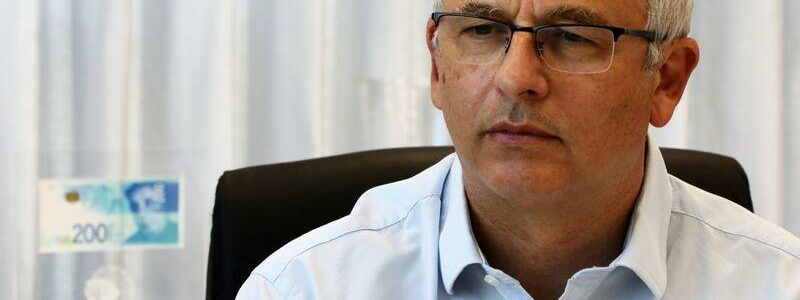
Israel central banker more concerned about financial instability than inflation
JERUSALEM (Reuters) – Financial instability and not rising inflation is the main challenge for central bankers in conducting monetary policy, Bank of Israel Deputy Governor Andrew Abir said on Wednesday.
“Global monetary policy that is very accommodative for an extended period of time is liable to lead to increased leverage and to taking of excess risks,” Abir told a central banking conference.
He cited the rush to crypto currencies, events like the volatility in GameStop shares, or the bankruptcies of private investment funds to which large banks had considerable exposure.
Central banks will have to develop tools to moderate risks deriving from overleverage and increased risk appetite, Abir said.
Inflation, he said, was less of a concern because of a two-decade long disinflation trend on the heels of technological developments, while the global jobs market grew sharply — led by East Asia — pushing down labour costs.
In Israel, reforms that opened the economy to competition and reduced the cost of living also led to benign inflation while a strong shekel moderated the rise in tradable goods, he noted.
Abir acknowledged the debate about whether recent rises in inflation — especially in the United States — were transitory, but said low inflation conditions could remain.
“There are still hundreds of millions of people in developing economies that are waiting for their opportunity to join the labour force and the global production chain. So long as there isn’t a retreat from globalisation, this factor will continue to support the low price levels in advanced economies,” Abir said.
At the same time, he added, technological factors have increased since the coronavirus crisis, and are expected to continue to support growth of productivity.
As a result, central banks will maintain very accommodative monetary policies in the short term due to high jobless rates.
In Israel, inflation “remains low” and is not a major concern unless inflation in Europe increases markedly, he said.
“It appears that we have enough reasons to be patient with our monetary policy, and to allow it to be accommodative enough to continue to support the economy’s recovery from the crisis,” he said.
On Monday, the central bank left its benchmark rate at 0.1%. A rate hike in 2022 or 2023 is believed to be the next move.
Source: Read Full Article